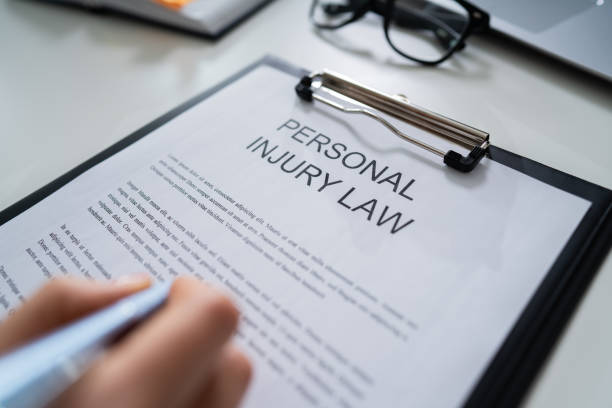Now Reading: Signs of Nursing Home Abuse and Why You Need a Lawyer Immediately
-
01
Signs of Nursing Home Abuse and Why You Need a Lawyer Immediately

Signs of Nursing Home Abuse and Why You Need a Lawyer Immediately
Caring for elderly loved ones is a responsibility that often leads families to rely on nursing homes for professional support. While many facilities provide excellent care, unfortunately, cases of abuse and neglect continue to occur. Recognizing the early signs of nursing home abuse is crucial to protecting your loved ones and seeking immediate legal recourse when necessary. This article will guide you through the common indicators of abuse, the types of mistreatment, and why contacting a lawyer without delay is essential.
Understanding Nursing Home Abuse
Nursing home abuse encompasses a range of harmful behaviors directed at elderly residents in long-term care facilities. These actions can be physical, emotional, financial, or even sexual in nature. Understanding what constitutes abuse is the first step in safeguarding your loved one’s rights.
Types of Nursing Home Abuse
- Physical Abuse
Physical abuse involves intentional harm or rough treatment that results in injury. Examples include hitting, slapping, pushing, or improper use of restraints. Even seemingly minor actions, like rough handling during bathing or transferring, can lead to serious injuries such as bruises, fractures, or internal injuries. - Emotional and Psychological Abuse
Emotional abuse can be subtler but is equally damaging. It includes verbal threats, humiliation, intimidation, isolation, or ignoring the resident’s emotional needs. Chronic emotional abuse can lead to depression, anxiety, and a decline in overall health. - Neglect
Neglect occurs when a facility fails to provide essential care, including proper nutrition, hydration, hygiene, medication, or medical attention. Persistent neglect can exacerbate chronic illnesses, lead to infections, or cause severe malnutrition. - Financial Exploitation
Vulnerable seniors are sometimes targets for financial abuse. This can involve unauthorized use of their funds, coercion into signing documents, or theft of personal property. - Sexual Abuse
Sexual abuse, though less frequently reported, is among the most egregious forms of mistreatment. Any non-consensual sexual contact or inappropriate sexual behavior towards a resident constitutes abuse and requires immediate action
For more details on the broader issue of elder abuse, you can refer to this resource: Elder abuse.
Warning Signs of Nursing Home Abuse
Identifying abuse early can prevent long-term harm and enable legal action to hold perpetrators accountable. While some signs are obvious, others may be subtle and easy to overlook. Families should remain vigilant and attentive to behavioral, physical, and environmental cues.
Physical Signs
- Unexplained injuries: Bruises, burns, fractures, or cuts that cannot be reasonably explained by falls or accidents.
- Frequent hospital visits: Repeated injuries or medical issues that seem preventable.
- Poor hygiene: Dirty clothing, unwashed hair, or signs of bedsores and infections that are not properly treated.
- Weight loss or malnutrition: A sudden or unexplained decline in weight can indicate neglect in meal provision.
Behavioral Signs
- Withdrawal or depression: Residents who suddenly become quiet, fearful, or withdrawn may be experiencing emotional abuse or intimidation.
- Fearfulness around staff: Signs of anxiety or flinching when approached by caregivers.
- Aggressive or disruptive behavior: Sometimes, abuse can trigger reactive aggression or anger in victims who feel powerless.
- Unusual reluctance to communicate: Refusing to speak about certain topics or avoiding interactions may indicate that the resident is hiding abuse.
Environmental and Operational Signs
- Staff shortages or high turnover: Overworked staff often lead to neglect and compromised care.
- Unsafe living conditions: Dirty, unsanitary rooms, poorly maintained equipment, or lack of basic necessities signal systemic neglect.
- Lack of transparency: If staff resist family involvement, deny access, or provide vague explanations about incidents, abuse may be occurring behind the scenes.
Why Immediate Legal Action Is Critical
If you suspect that a loved one is being abused, prompt intervention is crucial. Nursing home abuse cases are time-sensitive due to statutes of limitations, the need to preserve evidence, and the risk of ongoing harm to the resident.
Preserving Evidence
A lawyer experienced in elder abuse cases can help document injuries, collect medical records, gather witness statements, and identify facility patterns of neglect. Physical evidence, such as photographs of injuries or bedsores, can be critical in legal proceedings.
Holding Abusers Accountable
Legal action ensures that the responsible individuals and institutions are held accountable. Without intervention, abuse can continue, putting other residents at risk. Attorneys can pursue civil claims for damages, which may include medical expenses, pain and suffering, and compensation for emotional distress.
Ensuring Safety and Care
Beyond legal recourse, an attorney can assist in obtaining protective measures, such as restraining orders or emergency transfers to safer facilities. Immediate action helps stop ongoing abuse and prevents further harm to your loved one.
Navigating Complex Legal Processes
Nursing home abuse cases often involve intricate legal procedures, including administrative investigations, insurance claims, and potential court trials. Retaining an attorney early ensures that all deadlines are met, evidence is properly submitted, and your loved one’s rights are fully represented.
How a Nursing Home Abuse Lawyer Can Help
A specialized lawyer offers expertise and support throughout the entire process, from initial investigation to resolution.
Investigating the Incident
Lawyers conduct thorough investigations, examining medical records, facility logs, surveillance footage, and staff interviews to build a strong case. This step is essential to prove abuse and secure compensation for the victim.
Legal Representation
Whether negotiating with the facility, insurance companies, or pursuing litigation, an attorney provides expert legal representation. They understand state-specific elder abuse laws and can tailor strategies to each case.
Advocacy and Guidance
Family members often face emotional stress when dealing with nursing home abuse. A lawyer guides families through complex legal options, communicates with medical professionals, and advocates for the victim’s best interests.
Maximizing Compensation
Elder abuse cases may result in significant financial recovery for medical bills, rehabilitation, emotional distress, and punitive damages. Lawyers ensure that victims receive fair compensation for the suffering they endured.
For residents in the Woodstock area, a trusted nursing home abuse lawyer in Woodstock can provide immediate assistance in protecting your loved one’s rights and pursuing justice.
Preventing Nursing Home Abuse
While legal action is necessary after abuse, prevention remains the best approach. Families can take proactive steps to reduce risks and ensure high-quality care.
Conduct Thorough Research
- Facility reputation: Check online reviews, state inspection reports, and accreditation status.
- Staff credentials: Ensure caregivers are properly trained, licensed, and background-checked
- Resident-to-staff ratio: Adequate staffing is essential for proper care and monitoring.
Regular Visits and Communication
Frequent visits allow families to monitor their loved ones and build relationships with staff. Consistent communication with caregivers helps identify issues early.
Monitor Changes in Health or Behavior
Keeping detailed records of any injuries, changes in behavior, or unusual patterns can aid in early detection and serve as evidence if legal action is required.
Empower Residents
Encourage loved ones to speak up about discomfort, mistreatment, or unmet needs. Education about their rights and resources can reduce vulnerability to abuse.
Conclusion
Nursing home abuse is a serious concern that requires vigilance, swift action, and professional legal support. Recognizing the warning signs, ranging from physical injuries to emotional distress, and taking immediate steps can protect your loved one from further harm. The involvement of an experienced lawyer ensures that evidence is preserved, perpetrators are held accountable, and victims receive the justice and compensation they deserve.
About the author: Mark Scott
With a law degree under his belt, Mark Scott understood very early that law communication was a relatively neglected area. He decided to help people by “translating” the language and offering information and advice in a clear, useful, and actionable manner. For this reason, instead of finding him in court, you will most likely find his name online, where he is very active and thriving as a legal columnist. His part of making the world a better place is to make the law a less convoluted maze. He aims to make it easier for people to understand when and how to seek legal counsel, how to proceed in a significant number of legal matters, and to find the proper resources so they can stand up for their rights.











